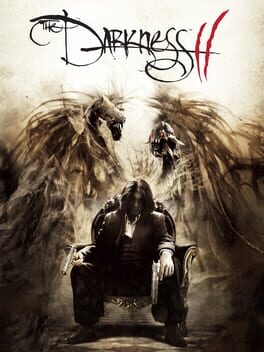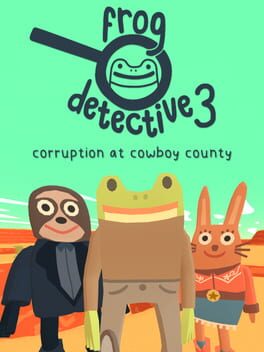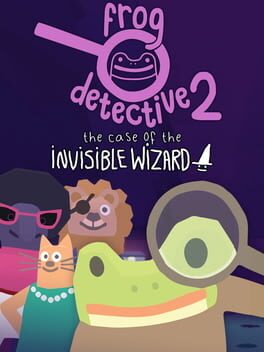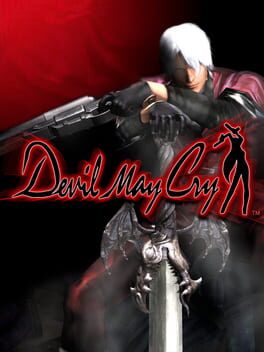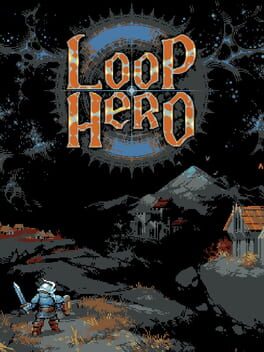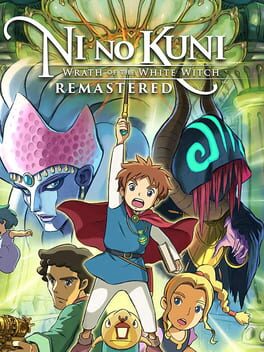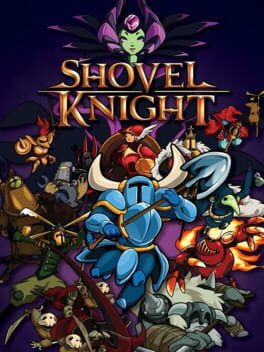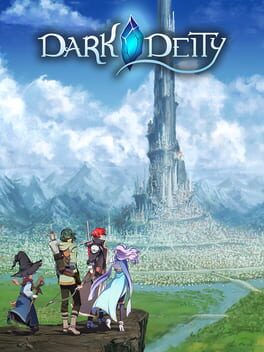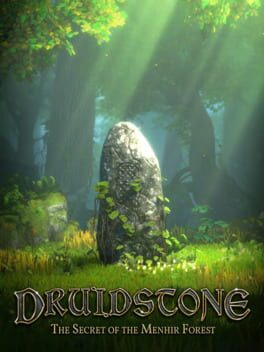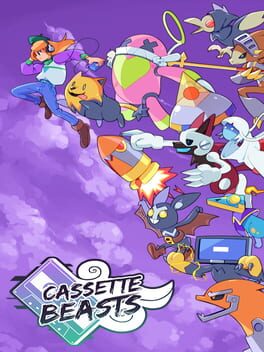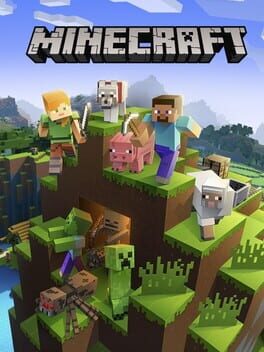afriendofours
2019
I played about 40 hours of Persona 5 in 2019 before circumstances led to the loss of my PS4. Waiting for 5 and later Royal to come to PC, I purchased Persona 4 Golden and played about 20 hours. That game unfortunately was a poor substitute for this one and I failed to get into it, so purchasing and ultimately playing through this behemoth of a game has been an immensely rewarding experience. To be fair to Persona 4 Golden, that game offered me a lot of what I love about this one. The gameplay loop of Persona games is something I find incredibly immersive; living out a chunk of time day-by-day (in Royal's case a year), growing social stats and developing relationships while the plot unfolds. I was drawn in by the steady but marked pace of Royal and the organic character development of my confidants that truly felt earned over time. I love the Megami Tensei shared universe lore, Persona combat systems, creature collecting, and storytelling approach of both Royal and Golden, and yet Golden was still a poor substitute.
Persona 5 Royal stands apart from other Persona games, from other JRPGs, indeed from other games in general primarily on vibe. This game offers a total aesthetic adherence unmatched by any game I’ve played. The visual design from costuming to setting right down to UI, music (of course), character writing, plot, and yes, the pacing all come together to form one message that you’re familiar with if you’ve played: Take your time. For my money this is the perfect comfy game. In 2019 my Saturday routine was to wake up, make a big breakfast with a pot of coffee, watch a couple episodes of Avatar: The Last Airbender, and play a few hours of Persona 5, a weekend routine that I long for now that my life doesn’t accommodate it.
These last weeks have been incredibly cozy, curling up with my Steamdeck and getting lost in the game’s world. Yes, it’s long, probably the longest I’ve spent on one completion of a non-roguelike singleplayer experience, but the length only serves to compliment the experience. There’s no rushing here, no panicking, no missing side content to mainline the story. The game takes over 100 hours no matter how you play, and for that time it fully immerses players in its world that oozes coolness and comfort while leveraging raw time investment to form meaningful relationships with characters and build an impressive plot that feels epic because of how much of the player’s actual life it takes to unfold, reminiscent of art like Sátántangó and Jeanne Dielman. Though the visual novel elements offer a superficial illusion of choice while leading down only one set path, they allow players to project their personality onto Joker which goes a long way to bolster immersion, and this game single handedly seeded my interest in visual and kinetic novels. Persona 5 Royal is the comfiest game I’ve ever played and probably the best JRPG I’ve ever played from a gameplay and story perspective, and it has given me characters that I know I will remember and think of forever. I love this game a lot!! Now onto P4G (again)!
Persona 5 Royal stands apart from other Persona games, from other JRPGs, indeed from other games in general primarily on vibe. This game offers a total aesthetic adherence unmatched by any game I’ve played. The visual design from costuming to setting right down to UI, music (of course), character writing, plot, and yes, the pacing all come together to form one message that you’re familiar with if you’ve played: Take your time. For my money this is the perfect comfy game. In 2019 my Saturday routine was to wake up, make a big breakfast with a pot of coffee, watch a couple episodes of Avatar: The Last Airbender, and play a few hours of Persona 5, a weekend routine that I long for now that my life doesn’t accommodate it.
These last weeks have been incredibly cozy, curling up with my Steamdeck and getting lost in the game’s world. Yes, it’s long, probably the longest I’ve spent on one completion of a non-roguelike singleplayer experience, but the length only serves to compliment the experience. There’s no rushing here, no panicking, no missing side content to mainline the story. The game takes over 100 hours no matter how you play, and for that time it fully immerses players in its world that oozes coolness and comfort while leveraging raw time investment to form meaningful relationships with characters and build an impressive plot that feels epic because of how much of the player’s actual life it takes to unfold, reminiscent of art like Sátántangó and Jeanne Dielman. Though the visual novel elements offer a superficial illusion of choice while leading down only one set path, they allow players to project their personality onto Joker which goes a long way to bolster immersion, and this game single handedly seeded my interest in visual and kinetic novels. Persona 5 Royal is the comfiest game I’ve ever played and probably the best JRPG I’ve ever played from a gameplay and story perspective, and it has given me characters that I know I will remember and think of forever. I love this game a lot!! Now onto P4G (again)!
2012
I beat the campaign on the 2nd difficulty in 2016—4.5 hours and I put it down. I replayed it in 2021 to get the 100% as I had 40% of the achievements and am glad I did. I think the main campaign speaks for itself; the 4 arm shooter is very fun.
I had never played the Vendettas campaign before, which was a mistake. I only wish the game actually identified Vendettas for what they are--an entire campaign about the length of the main campaign. I enjoyed the Vendettas characters--I recommend using Jimmy for the campaign as he is the most fun IMO. I also recommend the Hit List, which are kind of like Call of Duty Special Ops missions. Revisiting the same areas is worth it for little extra bits of story and Left 4 Dead style action with surprisingly unique characters--and it's multiplayer too, if you have a friend with a copy. I squeezed 17 hours out of this game and honestly had way more fun than I expected to.
I had never played the Vendettas campaign before, which was a mistake. I only wish the game actually identified Vendettas for what they are--an entire campaign about the length of the main campaign. I enjoyed the Vendettas characters--I recommend using Jimmy for the campaign as he is the most fun IMO. I also recommend the Hit List, which are kind of like Call of Duty Special Ops missions. Revisiting the same areas is worth it for little extra bits of story and Left 4 Dead style action with surprisingly unique characters--and it's multiplayer too, if you have a friend with a copy. I squeezed 17 hours out of this game and honestly had way more fun than I expected to.
2023
I often say that games are fully realized as art when they exemplify unity of concept. I'm adding Hi-Fi Rush beside Loop Hero on my list of games that achieve this. The core concept: what if a hack n’ slash was a rhythm game? So the story is about a kid with an mp3 player as the core of his powers, Chai's character arc is based on becoming a rockstar by becoming a superhero, his surrounding environment is alive to the beat, the aesthetic and atmosphere captures the energy of the driving BPM, obviously the gameplay is rhythm based, and even the arcade modes experiment with and evolve around BPM!! I was a little skeptical when I first saw Chai and Peppermint because they're tropey. But I was drawn in by the concept and vibrant and lively style, and this game is clearly inspired by the ps2 games I love; they were allowed to play with trope and cliché without all of us turning our noses up at them, so I decided to let the game speak for itself.
Strong performances from the voice actors endeared me to the cast in the early levels, and eventually I grew to love the cast as they grew to love each other (Pepperica…). I became invested in character growth and the character driven humour only hit harder as the game went on, masterfully walking the razor’s edge between silly and sincere. The first playthrough is quite short, but by the final levels I found myself genuinely touched by the emotional beats and enjoying the story beats which are made all the more engaging by thoughtfully employed quick time events. The story takes a backseat to the gameplay and yet is never backgrounded as each level is filled with personality and chatter from interesting bosses that in turn have interesting fights. I played the game on Hard for my first run and, while the learning curve is necessarily steep due to the length of the game, by the time I finished with it I was very proficient and it felt good to fly through fights that I only recently found quite punishing. Achievement hunting highlighted this particular aspect since I revisited the levels numerous times, always feeling improvement even after I had exhausted unlocks and upgrades.
Often when achievement grinding I prepare for a certain amount of tedium, but Hi-Fi Rush never felt frustrating or annoying. I didn’t love having to beat the game on Normal and Easy after Hard, but it felt like a victory lap with all my unlocks after beating Very Hard. That said, if the difficulty achievements did stack I would have gone to Rhythm Master after my Hard run instead of skipping that difficulty. There’s definitely some bloat in the end game achievements, but I’m glad that they’re there for people who love the game even more than I do and have the time and inclination to squeeze what I can only assume might take upwards of 100 hours out of the game. I’m not a perfectionist style of gamer, and I don’t think I could ever muster the strength to complete the no-hit and S runs required by the Wall of Fame achievement, but skill issue, whatever. That means I’m sitting at 63/71 achievements, and I’m very content with that after 40 odd hours. I didn’t bother with the Rhythm Tower and, while I did complete a run of Normal BPM Rush and Power Up! Tower Up!, I don’t have interest in the myriad of technically punishing challenges that lock the game’s 5 rarest achievements. That said, I can maybe see myself reassessing this stance in the future if the mood strikes me to pick the game back up, especially the Rhythm Master playthrough achievement (although damage and hp numbers already feel over-tuned in Very Hard). BPM rush IS very fun though…
I was very impressed by Hi-Fi Rush! I’ve seen this sentiment a lot and I’m sure you’ve heard it a lot too: it feels like this game was made for people like me. I love hack n’ slashes, I love rhythm games, I love ps2 style adventure games like Ratchet and Clank and Sly Cooper. But I don’t think this game is only for fans of those things, and I don’t think it’s fair to go in comparing it to those games. Sure it’s a must get for fans of the above, but I’m confident this game would turn the uninitiated into fans of whatever genre it introduces them to. The combat is tight, the story and setting are fun, the characters are lovable and full of life, the writing is funny and down-to-earth, the music is great; in short, it’s a blast. My biggest recommendation even to non-achievement hunters is to hunt down as many (all) of the vlogs and HR Investigator interactions as posssible! The achievements for these things are super rare and there’s some genuinely hilarious content in them! I love this game!
Strong performances from the voice actors endeared me to the cast in the early levels, and eventually I grew to love the cast as they grew to love each other (Pepperica…). I became invested in character growth and the character driven humour only hit harder as the game went on, masterfully walking the razor’s edge between silly and sincere. The first playthrough is quite short, but by the final levels I found myself genuinely touched by the emotional beats and enjoying the story beats which are made all the more engaging by thoughtfully employed quick time events. The story takes a backseat to the gameplay and yet is never backgrounded as each level is filled with personality and chatter from interesting bosses that in turn have interesting fights. I played the game on Hard for my first run and, while the learning curve is necessarily steep due to the length of the game, by the time I finished with it I was very proficient and it felt good to fly through fights that I only recently found quite punishing. Achievement hunting highlighted this particular aspect since I revisited the levels numerous times, always feeling improvement even after I had exhausted unlocks and upgrades.
Often when achievement grinding I prepare for a certain amount of tedium, but Hi-Fi Rush never felt frustrating or annoying. I didn’t love having to beat the game on Normal and Easy after Hard, but it felt like a victory lap with all my unlocks after beating Very Hard. That said, if the difficulty achievements did stack I would have gone to Rhythm Master after my Hard run instead of skipping that difficulty. There’s definitely some bloat in the end game achievements, but I’m glad that they’re there for people who love the game even more than I do and have the time and inclination to squeeze what I can only assume might take upwards of 100 hours out of the game. I’m not a perfectionist style of gamer, and I don’t think I could ever muster the strength to complete the no-hit and S runs required by the Wall of Fame achievement, but skill issue, whatever. That means I’m sitting at 63/71 achievements, and I’m very content with that after 40 odd hours. I didn’t bother with the Rhythm Tower and, while I did complete a run of Normal BPM Rush and Power Up! Tower Up!, I don’t have interest in the myriad of technically punishing challenges that lock the game’s 5 rarest achievements. That said, I can maybe see myself reassessing this stance in the future if the mood strikes me to pick the game back up, especially the Rhythm Master playthrough achievement (although damage and hp numbers already feel over-tuned in Very Hard). BPM rush IS very fun though…
I was very impressed by Hi-Fi Rush! I’ve seen this sentiment a lot and I’m sure you’ve heard it a lot too: it feels like this game was made for people like me. I love hack n’ slashes, I love rhythm games, I love ps2 style adventure games like Ratchet and Clank and Sly Cooper. But I don’t think this game is only for fans of those things, and I don’t think it’s fair to go in comparing it to those games. Sure it’s a must get for fans of the above, but I’m confident this game would turn the uninitiated into fans of whatever genre it introduces them to. The combat is tight, the story and setting are fun, the characters are lovable and full of life, the writing is funny and down-to-earth, the music is great; in short, it’s a blast. My biggest recommendation even to non-achievement hunters is to hunt down as many (all) of the vlogs and HR Investigator interactions as posssible! The achievements for these things are super rare and there’s some genuinely hilarious content in them! I love this game!
2001
Played for the first time through the DMC HD collection. IDK man there's just something special about ps2 action RPGs—they just don't make them like this anymore! OK sure the camera is annoying and the autolock is janky and some of the fights suck, and yeah I got stuck a few times on normal, specifically at the scythe mob in the small arena and the final boss, but overall the game far outshines its flaws. I love a good hack and slash and DMC is fun to play, combos are satisfying, missions are nice and short, getting new weapons feels cool, and the game just oozes personality. The melodrama of the story kind of works in the game's favour since it plays it so serious but really it's just cool to be Dante and move through cool levels. I adored the Mundus in space fight, beautiful design and I love suddenly being in a bullet hell shmup; more games should be this comfortable subverting gameplay expectations (shout out the Sea of Stars true ending final boss). After that dope ending cinematic I rewatched the NG+ intro cinematic just to see it. Not 100% but I may return to hunt some more achievements at a later date, this was just the short and sweet palette cleanser I needed after a 70hr slog.
2021
Loop Hero is my go-to example when I'm talking about video games as holistic pieces of art. The story, mechanics, music, art direction, and atmosphere all work synchronously to support the thesis of the piece. Whereas other games can have good stories and good mechanics, like Fallout New Vegas, or good stories at odds with their mechanics, like Ni No Kuni, Loop Hero's story is its mechanics and its mechanics are its story. The gameplay loop is integral to the narrative and this makes every system fully engaging because they all have narrative heft. As an idle game it may not be as as engaging or replayable as the best of the best, but it's definitely the best idle game and one of the most artistic games I've ever played. The protagonist should have been nb though...
Ni No Kuni is frustrating. It has a lot going for it, with the skeleton of a solid JRPG and the heart and soul of a Ghibli project. The latter is irrefutably its greatest strength and claim to fame. Every animated cut-scene is breathtaking, the story is solid (if immature) with some touching flourishes toward the back end, the world is beautiful and full of life, and the monsters are all wonderfully designed. I’ve seen some people complain about the ending, but I personally feel that the end-game and post-game are some of the most satisfying parts of the game both lore-wise and gameplay-wise, though the game’s charm is thickest in its first act meeting Oliver and exploring Ding Dong Dell. This is partially because everything is new and exciting, but also because there are significant gameplay flaws that only worsen the experience as the game goes on.
I’ve said Ni No Kuni has “the skeleton of a solid JRPG,” but unfortunately there’s no meat, no connective tissue, no brain as it were. The systems should work. It’s a creature collector, a genre I love, and the creatures are well-designed. It blends real-time combat with a pause function, and real-time with pause is my favourite system in CRPGs; this should translate. The movement and combat progression is paced well, and the merit reward system gives potent rewards that incentivize side quest progression. The most enjoyment I had with the game was breaking and then interfacing with it at a high level in the post-game, making it indistinguishable from, say, mindlessly grinding Pokemon. Unfortunately, that fact speaks to my core gripe with the game: it’s not fun!
Ni No Kuni is an exercise in tedium. Everything about it is tedious: overworld and interior navigation, creature collecting (!), regular fights, boss fights, and especially achievement completion. Until flight is obtained Oliver navigates the overworld at a glacial pace because movement speed is low and encounters are plentiful, and the activation of flight itself takes about 3 seconds. This same problem hampers interior navigation as well; that wouldn't be a problem if the interiors were all as interesting as Ding Dong Dell, but the cities are small and the dungeons are linear with few secrets or challenges that reward exploration. Conversely, the familiars are all interesting, but the tame system relies on pure RNG and is therefore annoying and needlessly grindy. This goes hand-in-hand with the evolution system, which resets familiars to level 1 and necessitates grinding or benching until they catch back up to the level of play. These are extensions of a generally flawed combat system that looks fine at a glance but feels wonky. The spell progression doesn’t feel powerful until well into the game, and the Unleash spell feels next to useless at the point it’s unlocked. An average fight one may even be overleveled for can take entire minutes because every enemy is a hitsponge and the time to kill is ridiculously inflated, and boss fights take these issues to the absolute maximum.
Not only do bosses have insane health pools and do insane damage, but they employ attacks capable of wiping an entire team with ~2 second block windows. Successfully defending is a feat itself, because if the player isn’t locked in a spell or item animation or watching a health bar slowly raise from the effect thereof, they have to navigate a clunky radial menu in real time. I personally acquired a Catastroceros as soon as possible to completely trivialize the following 30 hours of gameplay so that I would not have to engage with this system again. That’s a shame because some of the bosses in the late-game are actually cool, but the cool ones only start popping up in the last 10% of the game or so. The main antagonist for much of the story is the first to feature even a second phase! In fact, his third phase is the coolest fight in the game, because it evolves and experiments with the established scale and mode of combat. This is emblematic of a larger issue with Ni No Kuni made blatantly apparent in its last hours: the game is too scared to take risks until it’s far too late.
As I’m wont to mention, I like to get achievements in games. I set out, as I always do, to 100% Ni No Kuni, defying the protest of all my friends who watched me grapple with the game’s many flaws in real time. I eventually settled on 31/33, not because the remaining achievements are difficult to complete but because they are overwhelmingly tedious. In fact, every achievement not related to the story is, and many of them involve delving into the post-game. The bosses near the end of the game may still be over-tuned, but they evolve on the established model. The bosses in the post-game take this a step further, subverting the established modes of engagement learned during the game proper, and that’s cool! The same is true of the side-quests; before the post-game, the side-quests mostly consist of fetch quests, kill quests, or telegraphed Take Heart / Give Heart usage. In the post-game, the side-quests experiment on this formula and push the gameplay mechanics to their limits in fun and novel ways. This even extends to story beats! There isn’t a genuine character growth moment until the lead-up to the penultimate boss, but that moment is probably the single most powerful in the whole game. I have no idea why all of these genuinely fun and interesting ideas got pushed back to the end and post-game, because if I wasn’t a completionist I likely would not have experienced most if any of them.
For most of the game I thought Ni No Kuni would work better if it was boiled down into a 2 hour film, because the gameplay was far too tedious and the story beats and anime cutscenes too few and far between. Now I think it was really just a bit of fine tuning away from being a genuinely classic JRPG. The heart is there: the story is good, the art is very good, the concept is great, and the mechanics do what they’re supposed to. All it needed was an adjusted time to kill, controlled taming attempts, a more forgiving evolution system, some numbers tweaked, and some of the fat trimmed to streamline the actually interesting content. Bosses were given inflated numbers and made to punish slow reflexes where they should have had second phases or unique mechanics that play with established gameplay expectations like Shadar and The Guardian of Worlds do. Hell, that difficulty could have been shifted to transform rare showcases for singular telegraphed spells into puzzles actually required some thought or creativity. Unfortunately, Ni No Kuni is best remembered for what it could have been instead of what it is: a frustrating, unfun game that’s nice to look at.
I’ve said Ni No Kuni has “the skeleton of a solid JRPG,” but unfortunately there’s no meat, no connective tissue, no brain as it were. The systems should work. It’s a creature collector, a genre I love, and the creatures are well-designed. It blends real-time combat with a pause function, and real-time with pause is my favourite system in CRPGs; this should translate. The movement and combat progression is paced well, and the merit reward system gives potent rewards that incentivize side quest progression. The most enjoyment I had with the game was breaking and then interfacing with it at a high level in the post-game, making it indistinguishable from, say, mindlessly grinding Pokemon. Unfortunately, that fact speaks to my core gripe with the game: it’s not fun!
Ni No Kuni is an exercise in tedium. Everything about it is tedious: overworld and interior navigation, creature collecting (!), regular fights, boss fights, and especially achievement completion. Until flight is obtained Oliver navigates the overworld at a glacial pace because movement speed is low and encounters are plentiful, and the activation of flight itself takes about 3 seconds. This same problem hampers interior navigation as well; that wouldn't be a problem if the interiors were all as interesting as Ding Dong Dell, but the cities are small and the dungeons are linear with few secrets or challenges that reward exploration. Conversely, the familiars are all interesting, but the tame system relies on pure RNG and is therefore annoying and needlessly grindy. This goes hand-in-hand with the evolution system, which resets familiars to level 1 and necessitates grinding or benching until they catch back up to the level of play. These are extensions of a generally flawed combat system that looks fine at a glance but feels wonky. The spell progression doesn’t feel powerful until well into the game, and the Unleash spell feels next to useless at the point it’s unlocked. An average fight one may even be overleveled for can take entire minutes because every enemy is a hitsponge and the time to kill is ridiculously inflated, and boss fights take these issues to the absolute maximum.
Not only do bosses have insane health pools and do insane damage, but they employ attacks capable of wiping an entire team with ~2 second block windows. Successfully defending is a feat itself, because if the player isn’t locked in a spell or item animation or watching a health bar slowly raise from the effect thereof, they have to navigate a clunky radial menu in real time. I personally acquired a Catastroceros as soon as possible to completely trivialize the following 30 hours of gameplay so that I would not have to engage with this system again. That’s a shame because some of the bosses in the late-game are actually cool, but the cool ones only start popping up in the last 10% of the game or so. The main antagonist for much of the story is the first to feature even a second phase! In fact, his third phase is the coolest fight in the game, because it evolves and experiments with the established scale and mode of combat. This is emblematic of a larger issue with Ni No Kuni made blatantly apparent in its last hours: the game is too scared to take risks until it’s far too late.
As I’m wont to mention, I like to get achievements in games. I set out, as I always do, to 100% Ni No Kuni, defying the protest of all my friends who watched me grapple with the game’s many flaws in real time. I eventually settled on 31/33, not because the remaining achievements are difficult to complete but because they are overwhelmingly tedious. In fact, every achievement not related to the story is, and many of them involve delving into the post-game. The bosses near the end of the game may still be over-tuned, but they evolve on the established model. The bosses in the post-game take this a step further, subverting the established modes of engagement learned during the game proper, and that’s cool! The same is true of the side-quests; before the post-game, the side-quests mostly consist of fetch quests, kill quests, or telegraphed Take Heart / Give Heart usage. In the post-game, the side-quests experiment on this formula and push the gameplay mechanics to their limits in fun and novel ways. This even extends to story beats! There isn’t a genuine character growth moment until the lead-up to the penultimate boss, but that moment is probably the single most powerful in the whole game. I have no idea why all of these genuinely fun and interesting ideas got pushed back to the end and post-game, because if I wasn’t a completionist I likely would not have experienced most if any of them.
For most of the game I thought Ni No Kuni would work better if it was boiled down into a 2 hour film, because the gameplay was far too tedious and the story beats and anime cutscenes too few and far between. Now I think it was really just a bit of fine tuning away from being a genuinely classic JRPG. The heart is there: the story is good, the art is very good, the concept is great, and the mechanics do what they’re supposed to. All it needed was an adjusted time to kill, controlled taming attempts, a more forgiving evolution system, some numbers tweaked, and some of the fat trimmed to streamline the actually interesting content. Bosses were given inflated numbers and made to punish slow reflexes where they should have had second phases or unique mechanics that play with established gameplay expectations like Shadar and The Guardian of Worlds do. Hell, that difficulty could have been shifted to transform rare showcases for singular telegraphed spells into puzzles actually required some thought or creativity. Unfortunately, Ni No Kuni is best remembered for what it could have been instead of what it is: a frustrating, unfun game that’s nice to look at.
2014
I have a complicated relationship with Shovel Knight, a cool and beautiful game that I mostly hated playing. Learning new levels is extremely annoying and tedious because failing a problem means redoing all the precise and technical rooms in the lead-up, compared to a game like Celeste which respawns players at the problem they’ve failed. There are RNG dependent platforming segments and enemy mechanics that will kill players who have otherwise mastered a run. The healing "ichor" doesn't refill between attempts of a level. There’s no “reset to last checkpoint” button. Some of the bosses feel poorly designed, particularly Plague Knight and Enchantress (sorta); Enchantress’s first phase is one of the best designed fights I’ve ever seen, but phase two is one of the worst (hint, bounce on Shield Knight TWICE to make sure you reach the hitbox!).
I'm an achievement hunter, but I know my limits. I was never going to 100% this game, because I knew I didn't actually like it from the moment I encountered Specter Knight. Instead, I set my goal (which I achieved) as 39/45 achievements—everything except challenge runs. This included doing things like completing a level without dying, killing a boss without taking damage, completing a level without collecting money, and completing a level with 20 or less attacks. I loved playing the game in this way, perfecting a set of actions I already knew for a special goal, and this grind constituted most of the fun I had with the game. Unfortunately, it also entailed completing NG+.
NG+ puts a microscope on all of Shovel Knight's flaws. There are fewer checkpoints, so every problem is made more tedious. Damage is doubled, so RNG and finicky mechanics are more punishing. There's almost no food, which I didn't really notice until I did, and then I REALLY noticed it. The Tower of Fate: Ascent on NG+ is home to probably the single hardest boss rush I've ever faced in my entire life. Worse, it demands the use of ichor from all except the most insane players, but if one fails they must repeat the entire level for a refill. I spent 4 straight hours bashing my head against the boss rush, making incremental improvements while mastering the leadup to the point where I could run through the entire level in a couple minutes without dying, and when I finally won I almost passed out and then I almost burst into tears.
I have a begrudged respect for Shovel Knight. At this point I think I’m a serviceably good player, and that I learnt and played the game to the extent I did says something. The art and character design are captivating. The writing is good if spartan; the scene that precedes “The End” made me smile every time I saw it (3). Completing this game on NG+ is probably one of my greatest gaming achievements considering the perseverance and skill required and the effect it had on me. If you’re someone who loves technical and punishing platformers, I’m sure you love Shovel Knight. But I don’t. I don’t even really like it, for the most part.
I'm an achievement hunter, but I know my limits. I was never going to 100% this game, because I knew I didn't actually like it from the moment I encountered Specter Knight. Instead, I set my goal (which I achieved) as 39/45 achievements—everything except challenge runs. This included doing things like completing a level without dying, killing a boss without taking damage, completing a level without collecting money, and completing a level with 20 or less attacks. I loved playing the game in this way, perfecting a set of actions I already knew for a special goal, and this grind constituted most of the fun I had with the game. Unfortunately, it also entailed completing NG+.
NG+ puts a microscope on all of Shovel Knight's flaws. There are fewer checkpoints, so every problem is made more tedious. Damage is doubled, so RNG and finicky mechanics are more punishing. There's almost no food, which I didn't really notice until I did, and then I REALLY noticed it. The Tower of Fate: Ascent on NG+ is home to probably the single hardest boss rush I've ever faced in my entire life. Worse, it demands the use of ichor from all except the most insane players, but if one fails they must repeat the entire level for a refill. I spent 4 straight hours bashing my head against the boss rush, making incremental improvements while mastering the leadup to the point where I could run through the entire level in a couple minutes without dying, and when I finally won I almost passed out and then I almost burst into tears.
I have a begrudged respect for Shovel Knight. At this point I think I’m a serviceably good player, and that I learnt and played the game to the extent I did says something. The art and character design are captivating. The writing is good if spartan; the scene that precedes “The End” made me smile every time I saw it (3). Completing this game on NG+ is probably one of my greatest gaming achievements considering the perseverance and skill required and the effect it had on me. If you’re someone who loves technical and punishing platformers, I’m sure you love Shovel Knight. But I don’t. I don’t even really like it, for the most part.
2021
Dark Deity is an interesting game. Playing it I often thought about Sea of Stars. It's obviously a passion project by developers who love Fire Emblem as much as you, like Sea of Stars is to Chrono Trigger. Is it Fire Emblem quality? No, but what an insane standard to hold it to. To be fair, it's not Sea of Stars quality either, but I can't help but be impressed by what a small team and a kickstarter campaign has done here.
What I like about Dark Deity I like a lot. The class-promotion system is super cool, allowing players to freely hybridize between 4 level 10 and 4 level 30 classes. This creates a depth of customization that bolsters replay value significantly. Replaying on Hard with knowledge about this system I was rewarded greatly compared to my first playthrough on Normal where I was figuring it out as I went. Each class stage offers not only different skills but also stat growth patterns, which lends different approaches to different characters who all have unique skills and stat distributions of their own. There aren't really any "bad" units, and weaker units can be supplemented with adequate game knowledge turning them into destroyers. My off-meta units on my second playthrough were stronger than my meta units on my first.
On the topic of units, at first glance I thought the social "Bond" system in this game was going to be tedious. Between levels it might offer up to 10 unique dialogues between 30 units all with unique stories. At first I found these dialogues a bit cliche, but as they advance from stage 1/3 to 3/3 they become more interesting, specific, and nuanced as the characters develop relationships with each-other. By the end of the game I found myself cherishing my bond dialogues and lamenting levels where I had maxed them all out between my team of 14. This drove me to choose a completely different team on my second play-through to learn about the characters I had benched on my first, another testament to the game's replayability. I love games with hefty character rosters, and Dark Deity features a colourful cast some of whom I know I will think about in the future. The story writing mirrors the writing of the bond system; at first, it seems pedestrian, but it grows from typical beginnings to an interesting conclusion that I didn't predict with some really cool boss designs along the way.
The most common gripe I've seen with this game is the gameplay. I will make no illusions about the negative elements: It's kind of buggy and the game lacks polish in general. I'd personally have changed some of the UI controls like target selection and input confirmation (special commands take the place of the attack button leading to some extremely frustrating misclicks). If this is a dealbreaker for you then I understand, but I believe in giving grace to indie developers—Dark Deity is still more polished than some AAA games and I know that here it's not for lack of care. The learning curve is artificially inflated because the tutorialization is insubstantial. If you play this game you should know that there is a battlesave feature, which itself is buggy but can be used to savescum bugs. The lack of terrain tiles makes gameplay a matter of choke point control and matchup knowledge. This is exacerbated by the matchup chart being very hard to get a handle on, with the game offering differing interactions between 3 types of armour, 4 types of magic damage, 4 styles of weapon or spell, and 5 physical types of physical damage, and on difficulties below hard these differences don't feel significant or worth knowing (damage variance of -10%-40%). I myself choose to view this as a positive—let us not punish indie developers for being overly ambitious in experimenting with a classic formula. In fact, for all its flaws I think that Dark Deity shines in its innovations on the Fire Emblem formula.
The overly ambitious matchup chart may seem daunting, but once one learns how it works it rewards proper team building. I think this is a meaningful departure from the Fire Emblem approach, which is robust in its simplicity. I’ve never been one to condemn games for using similar mechanics and systems to others. This is a meaningful difference between videogames and other media. One would not decry Salem’s Lot as a Dracula clone, for a quick example, and yet a game like Dark Deity is written of as a Fire Emblem clone, life sims like Sun Haven are written off as Stardew Valley clones, platformer metroidvanias are called Hollow Knight clones and is that not itself a Castlevania clone? All of these games including Dark Deity are engaging with the form of games they’re in the tradition of, and I for one hold that it’s more interesting to see how they expand on and experiment with that established form and one’s expectations thereof. The best example from Dark Deity is its boss fights. In Rekka no Ken the most mechanically advanced boss is one who you can only counterattack safely. Dark Deity offers raid style bosses that use AoE attacks, apply effects outside of regular combat, require specific engagement with units other than themselves, and generally require a different style of play from ordinary levels;I found this experimentation on the Fire Emblem form extremely impressive and engaging. Beyond this are smaller QoL changes that I appreciate: tradable items that customize unit stats and effects when equipped, no weapon degradation, and perhaps controversially no permadeath. I’m a player who resets Fire Emblem levels when a unit dies—I want to bring everyone with me! Dark Deity’s injury system lets players weigh a permanent stat loss against the time they’ve spent in the level. This choice is not insignificant, and while I have eaten a late stat loss I found myself resetting more often than not. You might hate this system, but I love it!
Dark Deity can be a Fire Emblem clone if that’s all one chooses to see in it, but I think it’s much more. It’s fun, the world is beautiful, the characters are memorable both in their visual design and writing, the story is good and is affected by every one of its 30 unique characters, and it expands meaningfully upon the Fire Emblem formula. I’m not going to sugar coat the bugs; they can be extremely frustrating. After one Windows related crash upon stage clear I switched to playing exclusively on Steam Deck and had a great experience for the rest of my time with the game. I quite enjoyed and recommend Dark Deity to fans of Fire Emblem. That said, if your interest is piqued but the flaws seem too insurmountable, know that Dark Deity 2 is set to release in 2024 and the devs have engaged with player feedback and seem to have created a game that expands even more radically on its original formula; beyond QoL improvements they claim to have added terrain tiles, players will have access to more radical tools that affect the battle outside of traditional combat, and the costume design for female characters seems a bit more realistic too. One can never truly recommend a game before it releases, but my time with Dark Deity has guaranteed that I will purchase Dark Deity 2, and I think that’s as strong a recommendation as I can give for both.
What I like about Dark Deity I like a lot. The class-promotion system is super cool, allowing players to freely hybridize between 4 level 10 and 4 level 30 classes. This creates a depth of customization that bolsters replay value significantly. Replaying on Hard with knowledge about this system I was rewarded greatly compared to my first playthrough on Normal where I was figuring it out as I went. Each class stage offers not only different skills but also stat growth patterns, which lends different approaches to different characters who all have unique skills and stat distributions of their own. There aren't really any "bad" units, and weaker units can be supplemented with adequate game knowledge turning them into destroyers. My off-meta units on my second playthrough were stronger than my meta units on my first.
On the topic of units, at first glance I thought the social "Bond" system in this game was going to be tedious. Between levels it might offer up to 10 unique dialogues between 30 units all with unique stories. At first I found these dialogues a bit cliche, but as they advance from stage 1/3 to 3/3 they become more interesting, specific, and nuanced as the characters develop relationships with each-other. By the end of the game I found myself cherishing my bond dialogues and lamenting levels where I had maxed them all out between my team of 14. This drove me to choose a completely different team on my second play-through to learn about the characters I had benched on my first, another testament to the game's replayability. I love games with hefty character rosters, and Dark Deity features a colourful cast some of whom I know I will think about in the future. The story writing mirrors the writing of the bond system; at first, it seems pedestrian, but it grows from typical beginnings to an interesting conclusion that I didn't predict with some really cool boss designs along the way.
The most common gripe I've seen with this game is the gameplay. I will make no illusions about the negative elements: It's kind of buggy and the game lacks polish in general. I'd personally have changed some of the UI controls like target selection and input confirmation (special commands take the place of the attack button leading to some extremely frustrating misclicks). If this is a dealbreaker for you then I understand, but I believe in giving grace to indie developers—Dark Deity is still more polished than some AAA games and I know that here it's not for lack of care. The learning curve is artificially inflated because the tutorialization is insubstantial. If you play this game you should know that there is a battlesave feature, which itself is buggy but can be used to savescum bugs. The lack of terrain tiles makes gameplay a matter of choke point control and matchup knowledge. This is exacerbated by the matchup chart being very hard to get a handle on, with the game offering differing interactions between 3 types of armour, 4 types of magic damage, 4 styles of weapon or spell, and 5 physical types of physical damage, and on difficulties below hard these differences don't feel significant or worth knowing (damage variance of -10%-40%). I myself choose to view this as a positive—let us not punish indie developers for being overly ambitious in experimenting with a classic formula. In fact, for all its flaws I think that Dark Deity shines in its innovations on the Fire Emblem formula.
The overly ambitious matchup chart may seem daunting, but once one learns how it works it rewards proper team building. I think this is a meaningful departure from the Fire Emblem approach, which is robust in its simplicity. I’ve never been one to condemn games for using similar mechanics and systems to others. This is a meaningful difference between videogames and other media. One would not decry Salem’s Lot as a Dracula clone, for a quick example, and yet a game like Dark Deity is written of as a Fire Emblem clone, life sims like Sun Haven are written off as Stardew Valley clones, platformer metroidvanias are called Hollow Knight clones and is that not itself a Castlevania clone? All of these games including Dark Deity are engaging with the form of games they’re in the tradition of, and I for one hold that it’s more interesting to see how they expand on and experiment with that established form and one’s expectations thereof. The best example from Dark Deity is its boss fights. In Rekka no Ken the most mechanically advanced boss is one who you can only counterattack safely. Dark Deity offers raid style bosses that use AoE attacks, apply effects outside of regular combat, require specific engagement with units other than themselves, and generally require a different style of play from ordinary levels;I found this experimentation on the Fire Emblem form extremely impressive and engaging. Beyond this are smaller QoL changes that I appreciate: tradable items that customize unit stats and effects when equipped, no weapon degradation, and perhaps controversially no permadeath. I’m a player who resets Fire Emblem levels when a unit dies—I want to bring everyone with me! Dark Deity’s injury system lets players weigh a permanent stat loss against the time they’ve spent in the level. This choice is not insignificant, and while I have eaten a late stat loss I found myself resetting more often than not. You might hate this system, but I love it!
Dark Deity can be a Fire Emblem clone if that’s all one chooses to see in it, but I think it’s much more. It’s fun, the world is beautiful, the characters are memorable both in their visual design and writing, the story is good and is affected by every one of its 30 unique characters, and it expands meaningfully upon the Fire Emblem formula. I’m not going to sugar coat the bugs; they can be extremely frustrating. After one Windows related crash upon stage clear I switched to playing exclusively on Steam Deck and had a great experience for the rest of my time with the game. I quite enjoyed and recommend Dark Deity to fans of Fire Emblem. That said, if your interest is piqued but the flaws seem too insurmountable, know that Dark Deity 2 is set to release in 2024 and the devs have engaged with player feedback and seem to have created a game that expands even more radically on its original formula; beyond QoL improvements they claim to have added terrain tiles, players will have access to more radical tools that affect the battle outside of traditional combat, and the costume design for female characters seems a bit more realistic too. One can never truly recommend a game before it releases, but my time with Dark Deity has guaranteed that I will purchase Dark Deity 2, and I think that’s as strong a recommendation as I can give for both.
This is a fun tactical cRPG with a good story, engaging mechanics, and a cool nature-based magic system! It's got a pretty steep learning curve since it's less of a think-on-the-fly game like XCOM and more of a puzzle game where trial and error teaches you the optimal way to complete the level. If you have the patience for it, becoming good enough to beat the game on hard is incredibly satisfying. In my opinion Druidstone a must-play for fans of the genre and holds some surprises in the way of formal experimentation that should be pleasing to veterans.
2023
Cassette Beasts is a creature collector that is feels meaningfully different from the rest while developing on what I love about them, and it truly has it all! Great monsters, challenging fights and fun mechanics, cute art, strong character writing, killer soundtrack! Essential indie game from a team of 2 devs!!
2017
2022

